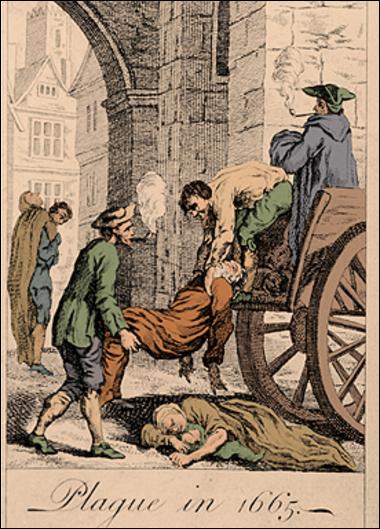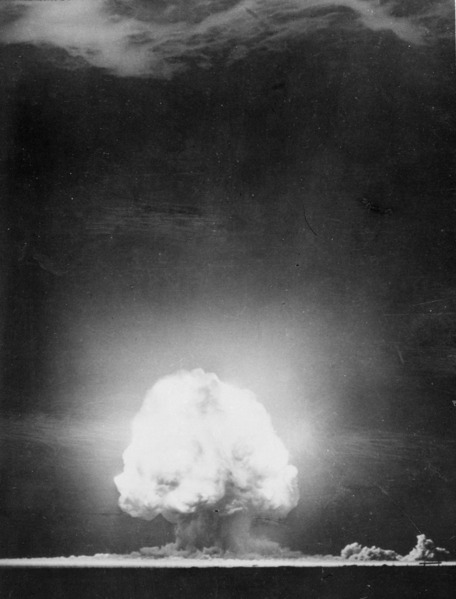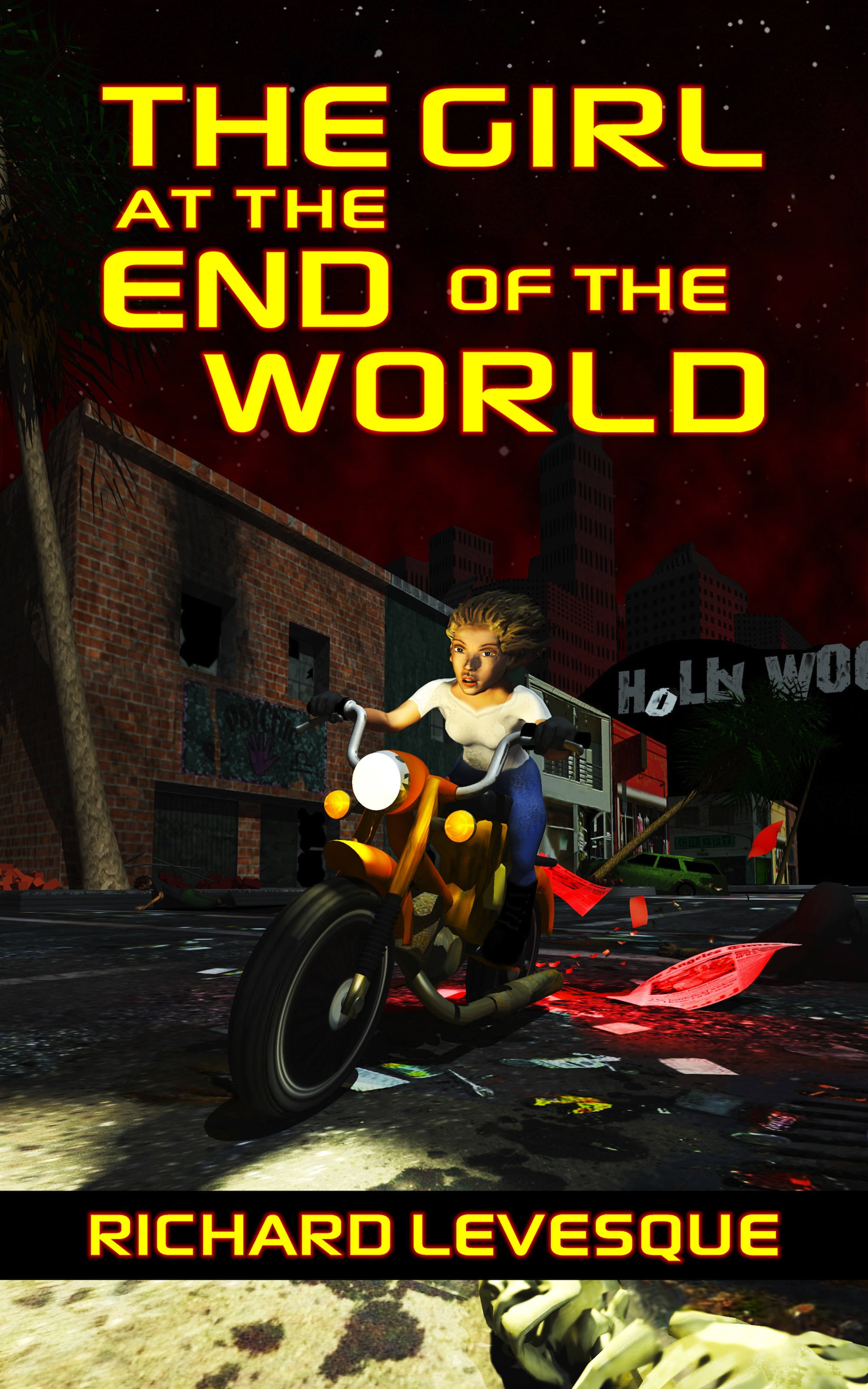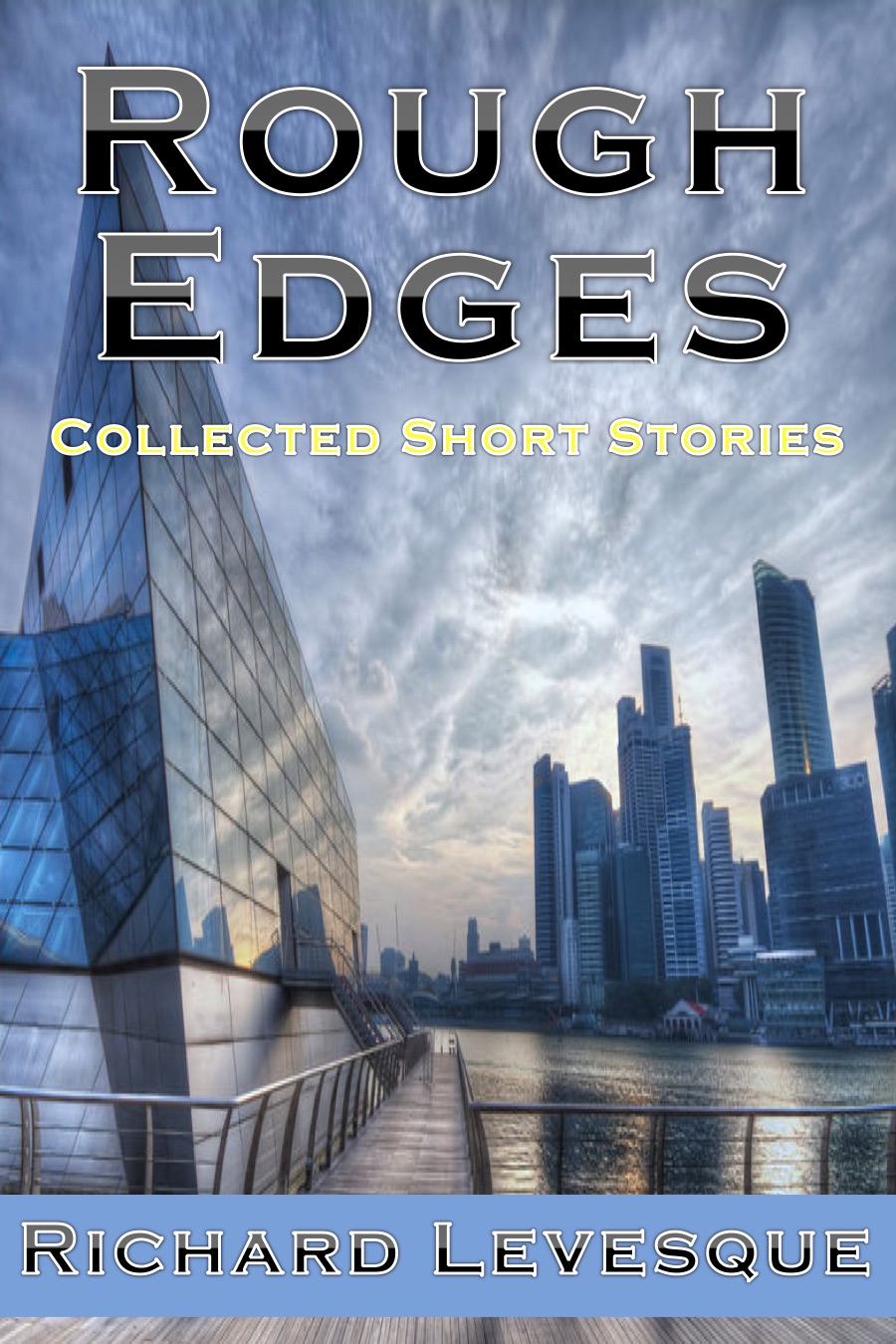It’s the End of the World as We Know It
 Over the last few months, I’ve been working on a new book, a bit of a departure for me as it’s not a noir-mystery-SF mash-up but rather a post-apocalyptic novel with a heroine who’s a fifteen year old girl. It’s been a lot of fun writing the book, and the revision/editing process is going nicely. The feedback I’ve gotten from my beta readers has been constructive, thought-provoking, and extremely enthusiastic, so I’m pretty excited about the book and can’t wait to get it out there.
Over the last few months, I’ve been working on a new book, a bit of a departure for me as it’s not a noir-mystery-SF mash-up but rather a post-apocalyptic novel with a heroine who’s a fifteen year old girl. It’s been a lot of fun writing the book, and the revision/editing process is going nicely. The feedback I’ve gotten from my beta readers has been constructive, thought-provoking, and extremely enthusiastic, so I’m pretty excited about the book and can’t wait to get it out there.
Still a bit more work to go, though. And the cover art needs to be completed, but my cover artist is on the job.
In the mean time, I’m thinking about the whole sub-genre of apocalyptic and post-apocalyptic science fiction. It’s got a long reach, going back at least to The Last Man, Mary Shelley’s 1826 follow-up to Frankenstein. And I suppose we could start all the way back with Revelations, but that’s not exactly my thing.
In recent years, there seems to have been a spike in this kind of literature, not to mention film and TV. The success of The Walking Dead and all things zombie is just one example. There have also been successful books about plagues, world domination by vampires, natural disasters, diseases, nanotechnology gone bad, etc. In story after story, humanity is wiped out, leaving behind a tiny group of characters whom readers and viewers get to love and hate and (mostly) have hope for.
What I wonder about, though, is where this fascination with the end of the world comes from. Theorists argue that science fiction about aliens and alien invasions tends to spike around times of national crisis and anxiety about immigration or foreign influence on one’s country’s future. And it’s not hard to see how changes in technology in any era have impacted science fiction writers’ visions of the future. You can’t look at most of the SF that came out in the late 1940s and 50s without seeing the specter of The Bomb lurking between the lines.
So what drives the need to continually destroy the world? And why are we so drawn to The End these days?
Is it wish fulfillment? Could it be that we’re so disgusted with the state of the world that we’ve slipped into wishing it would all just end? This may have particular resonance for the YA apocalypse novel, as teenagers get to see the realization of their fantasies that all the adults would just go away.
Or is it a response to the lack of intensity in our modern lives? We’re safe in our houses with our home theaters and smart phones. There’s no immediate danger from wolves or weather or marauding bands of cannibal raiders–just the kind of danger that may come if we can’t make the bills next month to cover that surround sound system. Getting to see characters surviving in a harsh environment (with no electricity!) may supply just the kind of intensity our soft lives are devoid of.
 Or is it a paradoxical response to anxiety about the fragility of our world? To some degree, the threat of global nuclear war has decreased from the paranoia we experienced during the Cold War, but the possibility’s still there. And with the global economy, we’re probably more susceptible now than at any time before to widespread disaster: something terrible happens in an isolated part of the world, and it’s no longer happening in isolation. Because of travel or shipping or economic links, the ripples are felt around the globe almost immediately, and maybe unstoppably. If we’re seriously worried about something like a global epidemic or complete economic meltdown, there may be some catharsis in seeing the disaster played out on the screen (theater, TV, or Kindle). There may be a feeling of relief in seeing the world end from the safety of our sofas. Add to that the identification we may feel with some of the survivors, and we’ve vicariously survived the end of the world.
Or is it a paradoxical response to anxiety about the fragility of our world? To some degree, the threat of global nuclear war has decreased from the paranoia we experienced during the Cold War, but the possibility’s still there. And with the global economy, we’re probably more susceptible now than at any time before to widespread disaster: something terrible happens in an isolated part of the world, and it’s no longer happening in isolation. Because of travel or shipping or economic links, the ripples are felt around the globe almost immediately, and maybe unstoppably. If we’re seriously worried about something like a global epidemic or complete economic meltdown, there may be some catharsis in seeing the disaster played out on the screen (theater, TV, or Kindle). There may be a feeling of relief in seeing the world end from the safety of our sofas. Add to that the identification we may feel with some of the survivors, and we’ve vicariously survived the end of the world.
Of course, not all the “survivors” actually survive. In some stories, everybody dies. But even then, we get to close the book or click off the Kindle or switch inputs on our home theater system to check out what’s happening on Duck Dynasty. In essence, we survive.
And that feeling of our own survival may be what drives our need to go back to those fragile worlds where everything we’ve counted on to ensure our continued existence in the actual world has been stripped away, and we get to see characters we identify with living out our worst nightmares.
So what do you think? The end of the world keeps cropping up in our entertainment, drawing us in like moths to a mushroom cloud, but why do you think we love it so much?
UPDATE: My end-of-the-world novel, The Girl at the End of the World, is now available in ebook and paperback formats at Amazon.
Apolcalypse Cold War Duck Dynasty End of the world Frankenstein Kindle Mary Shelley Nanotechnology Nuclear War Plague Post-Apocalypse Post-Apocalyptic Science Fiction The Last Man The Walking Dead YA Young Adult








5 Responses
Fiction is a safe way to experience the impossible, the awful, and the truly grotesque. We like to be horrified, as long as we can safely leave the horror any time we like.
I’m also working on a novel about a young woman set in a post-apocalyptic world – in some ways the draw is that you can have practically a clean slate to start from. ok, not ‘clean’ in the dictionary sense of the word, but that you have so much freedom with your world and your characters.
Good point, and I suppose the draw is the same for readers–getting to see the world made fresh.
I was a teenager when the Evangelical Apocalypse hit our neighborhood pretty hard. A charismatic sociopath preacher moved into an old mid-century stripmall storefront and started preaching his Y2K flavored Apocalypse ( while raking in the cash & molesting his acolytes). My brother and sister being primed to consume such dark outcomes by our Catholic apocalyptic father were taken in by this slightly warmer, “full of love” Jesus is your angry boyfriend version of God killing everyone.
When I review my own gullibility, living in the half darkness and doubt of American youth, where we have only recently learned that our parents lied about Santa Claus, I still had shards of their mythology obscuring my view of reality. I felt the influence of these “adult” siblings, my teachers and guides for the past 15 years who almost never lied to me before. The sad truth I gathered from my exposure to religious apocalypse is that it’s comforting, e.g., I won’t be vaporized any moment by a nuclear bomb because there is a plan, laid out by a deity, and we know exactly what we need to do to escape: say magic words.
These various versions of “secular” Apocalyptic tales are the comforting “missing manuals” that show flawed human characters – just like us – surviving a future without the Deus Ex Machina ending that keeps being predicted… but always disappoints.
You did not mention a biggy, much of the apocalptic science fiction is about our polluting of the world and our destruction of its environment. For example Terry Brooks YA series Genensis of Shannara, Steve Amsterdam’s Things We Didn’t See Coming, George Turner’s The Sea and Summer. I think that sort of fiction is read by people who are trying to imagine what it would be like to live in a world with run away climate change or pollution.
I have also read many books were a virus is the main reason for humanities destruction, Justin Cronin’s The Passage, H.M Brown’s Red Queen, Margaret Atwood’s Oryx and Crake. These books are more about our futures being taken away by some unforeseen event. So perhaps uncertainty about the future drives people to read these.
I read these books because I think civilisation will eventually collapse, probably this century due to wars resulting from climate change, and I wonder, if I was still alive then, how would i survive. I do like reading about ordinary people having the will to go on and survive, like the man in Cormac McCarthy’s The Road, or the main character in Margaret Atwood’s The Year of The Flood.
All great examples. Thanks for reading and commenting. I’m going the disease route in my upcoming book, by the way. All sorts of ways for the world to end…
Comments are closed.